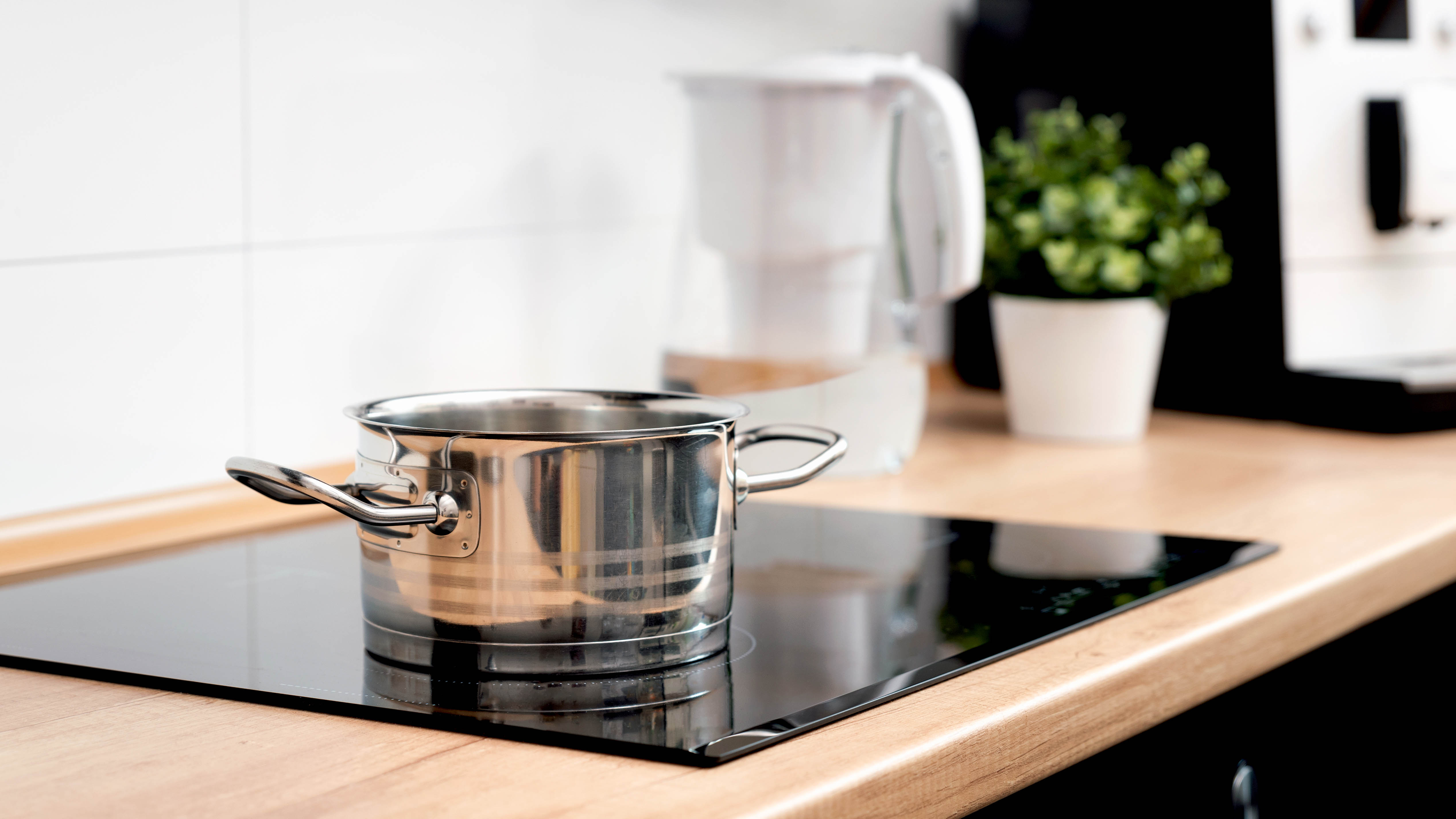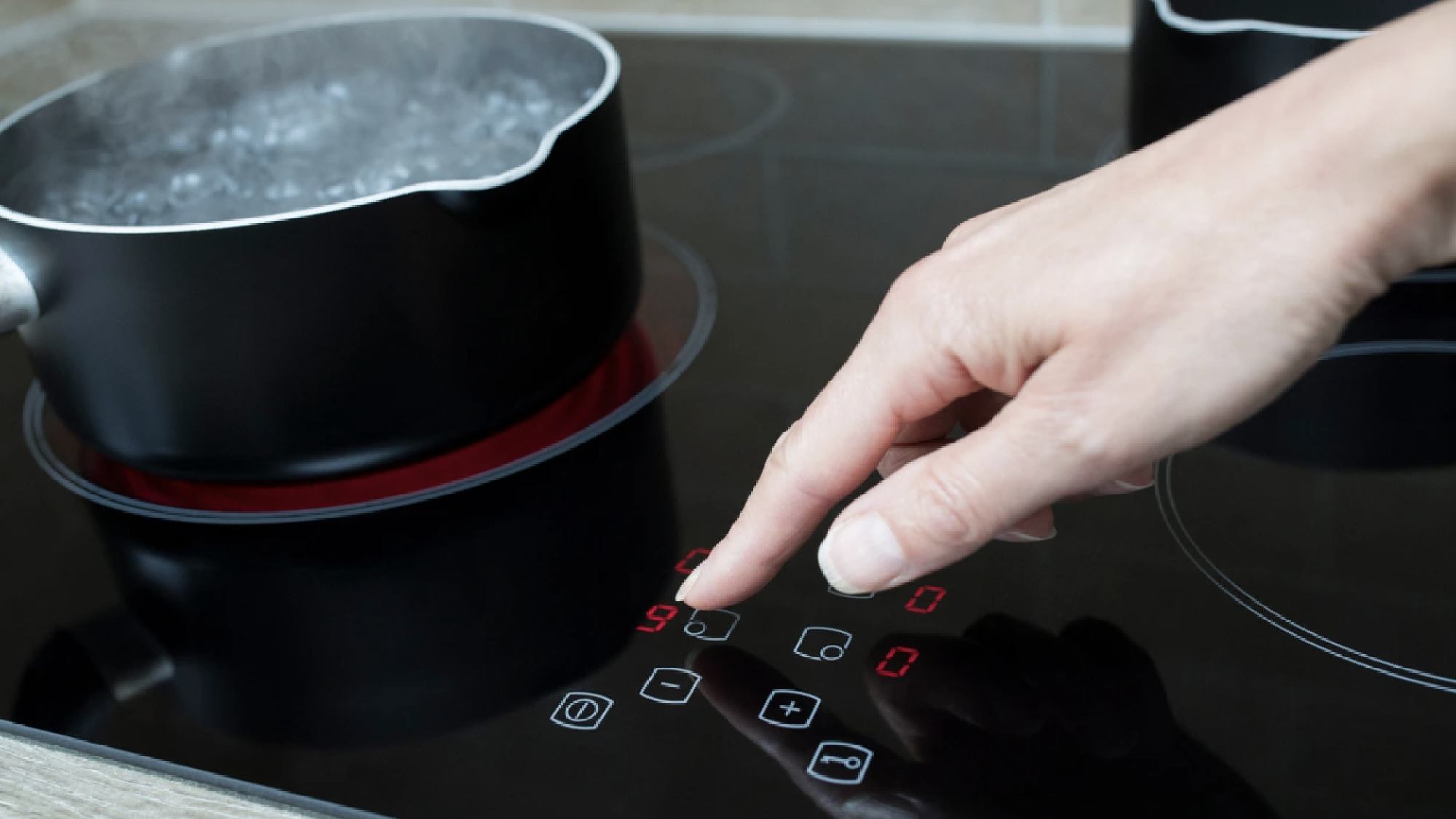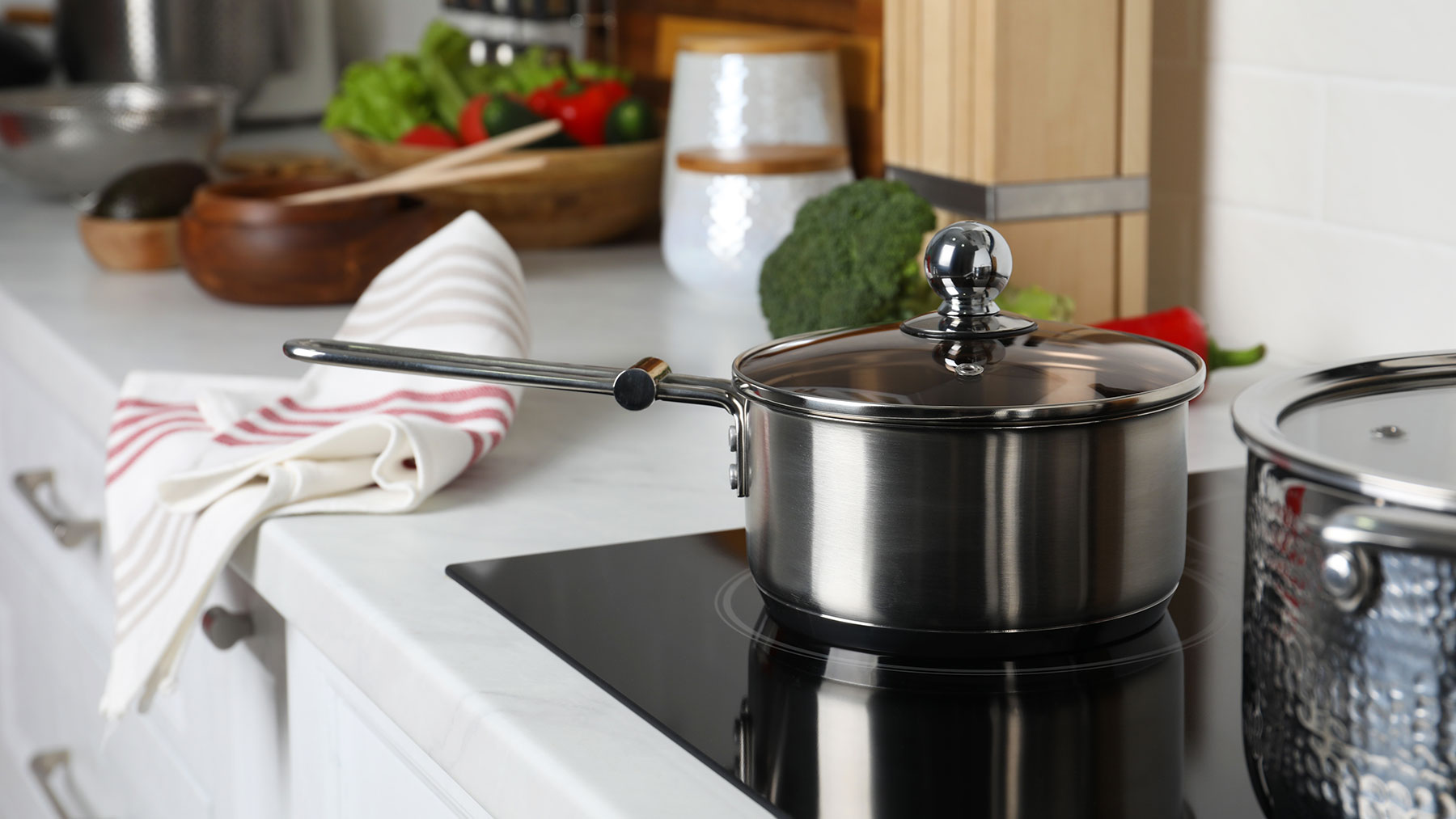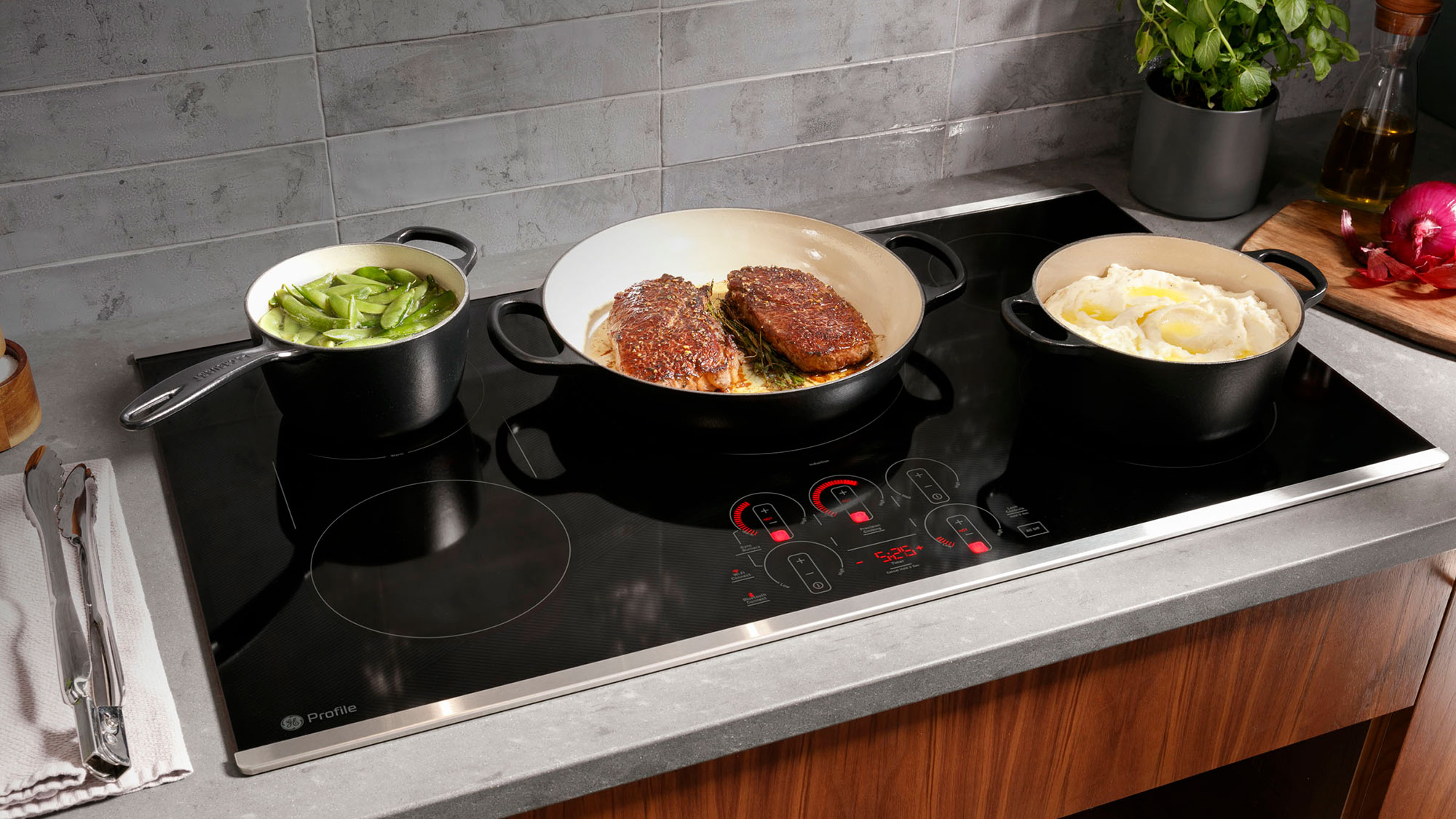
There’s a lot of love about induction cooking, and when I tried an induction cooktop for the first time, I learned it’s faster, more precise, and extremely energy efficient.
But, induction cooking differs from using one of the best gas or electric ranges. Although the technique is not difficult to pick up, it’s worth learning how to use an induction cooktop before you start.
The main difference when using an induction cooktop is that the heat is transferred differently than when cooking with gas or electricity. For this reason, an induction cooktop will only work with certain types of pans. So, if you buy an induction cooktop, does it mean you’ll have to throw out your stainless steel cookware?
Luckily, stainless steel pots and pans will work with induction cooktops. Here, the experts at BSH explain why.
How does induction cooking work?

Rather than the cookware being heated in the traditional manner of a gas or electric cooktop, with induction cooking, the heat is passed differently.
An electric current passes through a coiled copper wire underneath the cooking surface. This creates magnetic energy that interacts with the cookware rather than the surface of the cooktop. For successful heat transfer, the pans need to be magnetic. If not, no heat is transferred.
How does stainless steel work on an induction cooktop?
Fortunately, stainless steel is magnetic, so if you have a set of stainless steel pans and are about to invest in an induction cooktop, you won’t have to replace them. Henri Creech, Senior Product Marketing Manager, Cooking at BSH, explains: “Stainless steel works similarly to any other induction-compatible material. If the stainless steel has a sufficient concentration of magnetic metals, then it will absorb the magnetic field produced from the coils beneath the cooktop. This process generates heat, which allows for cooking.”
Are all types of stainless steel induction compatible?

Although stainless steel is generally induction-compatible, it does depend on the quantity of other metals within the pans, as this can interfere with heat transfer. “Consumers should avoid stainless steel pots and pans with high amounts of nickel content,” advises Creech, “High concentrations of nickel block the magnetic field.”
To help you work out which type of stainless steel pans to buy, Creech says, “Look for stainless steel 432 and ferritic stainless steel.”
How can you tell if your stainless steel pans are induction-compatible?
There’s a simple test that you can conduct at home to see if your pans are induction-compatible. Jessica Leonard, Senior Product Marketing Manager, Cooking at BSH, tells Tom's Guide: “Attach a magnet to the bottom of your pot. If it sticks, then your pot is compatible with induction technology.”
Apart from the magnet test, Leonard explains that Bosch/BSH induction cooktops have a built-in cookware suitability indicator that makes it easier. It can check the ferromagnetic material in the cookware and then rates it on a scale of 0-2, ranging from not compatible to good and best.
If you are buying a new pan and it is induction-compatible, it will be marked with a specific symbol, which resembles a coil and looks very much like a spiral.
Will non-stick stainless steel cookware work on an induction cooktop?
Non-stick cookware has a lot to recommend it, but does this make a difference when using an induction cooktop? According to Leonard, “Any pan with a magnetic base will be compatible with induction.”
What are the benefits of cooking with stainless steel?
Although Leonard says cookware of choice depends on a user’s preference and cooking style, Creech says stainless steel is “durable, easy to clean, and maintains an even heat distribution.”
What other types of pans are induction-compatible?

Induction-compatible pans must contain iron in order for the magnetic field to heat the cookware. So, apart from stainless steel pans, with some exceptions, you can also use cast iron and enameled cast iron. However, glass, aluminum, and copper pans are not compatible.







